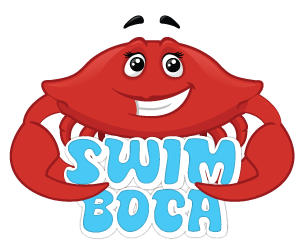FAQs
How quickly will my child learn to swim?
Every child learns at his or her own pace. How quickly a child learns depends on many different factors. How often you practice with your child will greatly affect how comfortable and confident in and around the water they become. It is always important to remember that no matter how big or small the child's progress is, always maintain a positive attitude.
What if my child cries?
Young children communicate with adults in an unfamiliar environment by crying; this is a normal expression. You must remember that your child is in a new environment with a new person. Children will look to you, the parents for approval. Being patient and maintaining a positive attitude will go a long way in helping to ease any child's fears. As the lessons continue the child will become more comfortable and acclimate to their new environment. It's important to be patient and continue with lessons until the child overcomes any fear of the water.
At what age is my child ready to swim?
We recommend that children as young as 6 months old begin swim lessons. The earlier a child starts the more likely they are to accept the water and the sooner they will learn to swim. Also the earlier they start the less fear there will be to overcome. Please remember that no child should ever be considered "water safe" or "drown-proof," regardless of swimming experience or ability. Children should never be left unattended around pools or open water.
What is your schedule and availability?
Learning is fun and successful when you make it a consistent priority in your child's week. Similar to piano or any acquired talent, learning to swim is a progression of skills that take time to coordinate with your child's age, attitude, and ability. Our program is designed to encourage year-round swimming. We recommend a minimum of 2-3 times a week in the beginning and then taper the frequency from there. We do our best to accommodate your needs, as we realize schedules do change. Our instructors are available Monday through Saturday.
What if the weather is bad?
In the interest of safety it is Swim Boca's policy to reschedule rather than conduct a lesson in poor weather. If the weather looks bad we ask you to please call your instructor. Sometimes the weather is nice in one part of town and not the other, and in many cases can change for the better or worse within a half an hour. Your instructor will most likely call if he or she believes it will be an issue, but please do the same if you have not heard from them. Missed classes due to inclement weather will be made up at a later date. If a class is cut short due to inclement weather the remaining time will be added to other scheduled classes. If in doubt, please call 888-LRN-SWIM (576-7946).
What can I do to help my child learn?
Practice, practice, practice. The more the child is in the water working on what they were taught during the lesson, the more comfortable they will be, the faster they will pick up the skills, and the more confident the child will be in the water. The greatest motivator for a child is hearing positive reinforcement from mom and dad. Always tell your child what a great job they are doing and how very proud you are of all of their hard work.
How long before a lesson can I feed my child?
We recommend not feeding your child for at least 2 hours before a lesson, especially dairy products. It is no fun swimming with an upset belly.
Should I stay or should I go?
Many times parents ask the questions "Will it be too distracting if I stay and watch"? Although many children are completely comfortable and hop right in the pool on their first lesson, their are also many children who will become distracted by having mom or dad there watching. We often tell the parents or guardians that it may be better to "peek" or watch from somewhere where you can see the child, but they can't necessarily see you. The goal is to have the child focused on the instructor and what they are doing in the pool, as opposed to looking for mom or dad. It is also crucial to have your child form a bond and trust his or her instructor.
A Note About Crying:Crying is a very typical response, it is also natural for the child to want to be with the parent. Many times this crying is not a fear of the water, but separation anxiety. It is not unusual for a child to cry or fuss for the first few weeks. It just takes time and patience. It will become easier every time, and soon the child will begin to enjoy their time in the pool.













